In the 50s the Kaka, farming and hunting people who dwell around the mountains and valleys of Mambilla, transformed by becoming shepherds to the Fulani, receiving payment in the form of cattle. At this point something new immediately entered the Kaka cosmology which had initially been agricultural. They are now both farmers and herdsmen, and the Fulani have adopted the farming methods, and mastered the languages of the Kaka and their neighbours.
“There are non-Fulani cattle rearers on the plateau. It is very common, it’s everywhere, not only here. Cattle rearing is a lucrative business, and everybody wants to participate in it. Some Fulani are also farmers and cattle rearers, and some of the Mambila are also farmers and cattle rearers,” admits Umaru Zubairu, Wakilin Mambilla, shedding light on cattle rearing on the plateau.
On the Mambilla plateau, there are instances where a non-Fulani can be appointed as an Ardo, and this sounds like a departure from the norm. This is a change that was initiated by the Mambilla themselves, and welcomed by the Fulani.
Not by tribe, but by profession
Saidu Bawa, Wakilin Fulani, comments on this. “That is a recent innovation which his majesty introduced in order to make the other communities not to feel segregated. Once you have cows, you are encouraged to become a Fulani man, even though not by tribe, but by profession. You can be an Ardo, and not only that, you can one day be appointed Sarkin Shanu.”
He opens up on the fuller implications of this appointment, “It encourages them to rear cattle.” Bawa reflects, “Even if you had cattle some years back, you wouldn’t be appointed an Ardo.”
Ardo
“It was some years ago that only Fulani were appointed Ardo, but the chief felt that once you are doing almost the same occupation, you have now become a cattle rearer. It doesn’t have to be a Fulani man only, any cattle rearer on the plateau can be appointed an Ardo.” Kabiru Hamidu, a teacher in Gembu refers to Ardo Adamu Mabum from the Kabri chiefdom.
Bawa informs me later that there are four or five Ardos in the Kabri and Kuma Chiefdoms on the plateau, but none yet among the Kaka ‘because there are only a few of them who own cattle.”
Mixed farmers
He makes another point relating to changing occupations on the plateau. “It’s very interesting, it encourages people economically, instead of being a farmer alone, many have become mixed farmers. Many prefer to become mixed farmers. They have farms but also rear cattle, and livestock. It improves their economy and standard of living.”
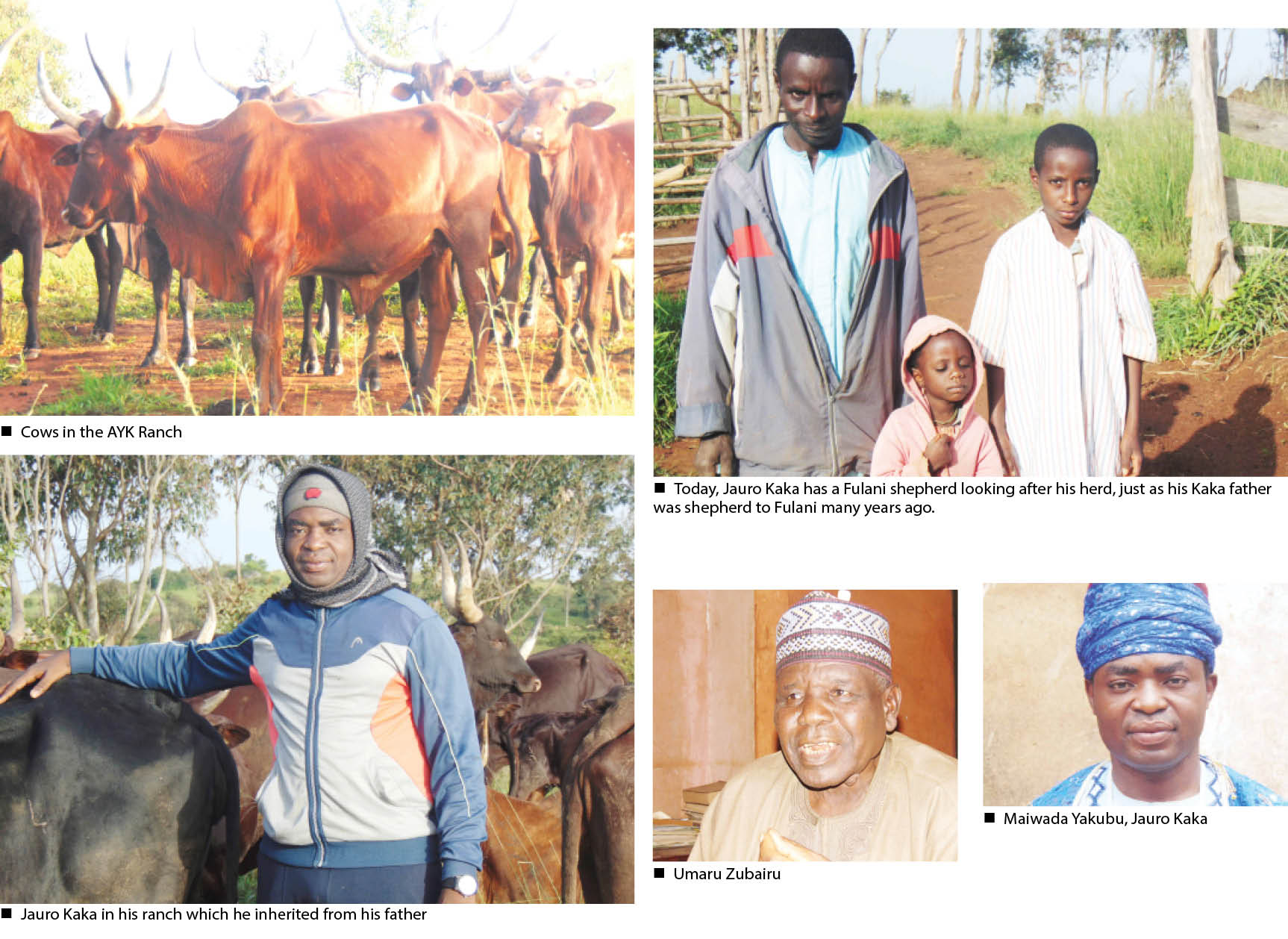
Festive hills
River Donga, which flows into Cameroon, charts a course through the valleys, and there are numerous streams and waterfalls in the general area. This is a well-watered place and Gembu itself is quite green. There are many farms and green forms a luminous carpet over many hills. It’s as though the hills themselves are in a festive mood, outdoing each other in displays of glowing green. Vast herds of cattle are on the plateau and several cattle markets exist, including the famous one at Nguroje.
Just like the Fulani
“In other places you hardly see people rearing cattle the way Fulani do, but the Mambilla people can do it exactly the way a Fulani man would. All of this is a fall out of the unity we enjoyed since inception. Initially, there were no fights on the plateau. Also, there are intermarriages on the plateau,’ says Aliyu Mansur, Galadiman Mambilla.
We became brothers
“Fulani used to come from Adamawa. Mayon Daga was the headquarters, and this was later transferred to Gembu. The Fulani first settled in Gembu. Mambilla people coming from the villages to go to school were taken into Fulani homes. This is how we became brothers. Fulani have learnt other languages. If a Fulani is coming from Kakara, he can speak the language spoken there,” says Mansur.
“The reason for transferring the headquarters from Mayon Daga to Gembu is that if the chief stays in Mayon Daga, he cannot easily go on tour and he will face lots of difficulties. Before he can cover the whole plateau, it will take three months. He now thought of a central location on the plateau, where if he wants to travel anywhere, he can easily go.”
Kaka, Kambu rear cattle
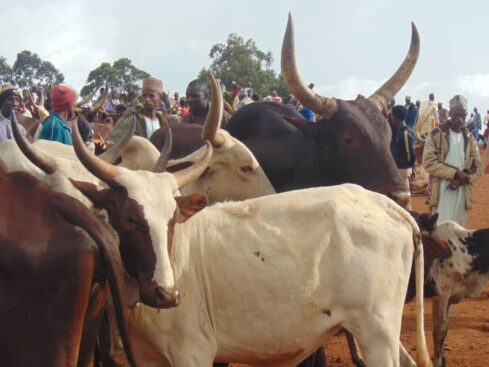
Abubakar Hamma’adama is the Wakilin Kaka. Hear him, “Here on the Mambilla, it’s not only the Fulani that rear cattle, the Kaka, Mambilla, Panso, Kambu, all rear cattle.’
Shepherds to Fulani
How did all these groups on the plateau get cattle? His words: “They were employed by the Fulani as shepherds to rear their cattle. In those days when they rear their cattle the Fulani compensate them after 6 months. That is, they compensate them twice in a year with cattle, not that they give them money. When you rear cattle for 6 months, they will give you a bull. After 6 months, they will give you another one. If you rear for a ten-year period, you will have your herds.”
Land, land
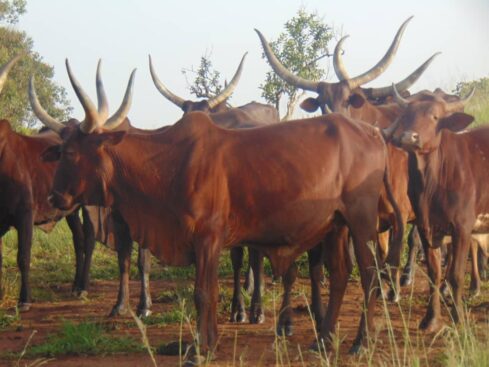
Hamma’adama explains the vital issue of land, which is connected with ranching, “Land was available at that time. You just go to the district head. The district head stood as the chief of the land. He was the judge, the pastor or chief imam, and was the head of the native authority. They will go to the district head and he will allocate a land to somebody who has enough cows. Then they will give him land to go and start rearing.”
He concludes. “That is the way many people got cows from the Fulani, and became owners of cows on the Mambilla plateau.”
Kaka can become Ardo
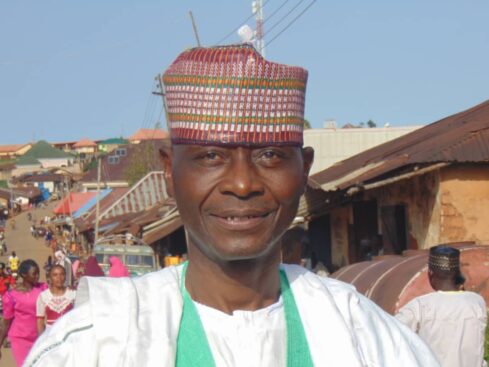
Hamma’adama adds, “In those days the title Ardo is one title that is given to herdsmen. They give it only to Fulani, but now since all the other tribes have become herdsmen, the chief now appoints a Kaka man, or a Mambilla man as Ardo.”
Naira, not cattle
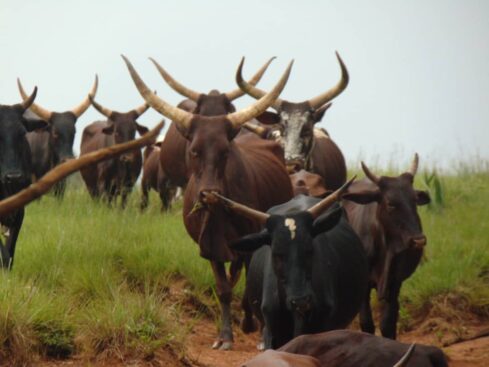
He opens up on the method of payment. “Today, the shepherds are still rearing cattle for the Fulani, but they are not paying them with cows, rather they make payment with Naira. They are paying Kaka with Naira, even Fulani shepherds are being paid with Naira.” The replacement of cattle with Naira as a means of payment seems to represent a major cosmological shift among the Fulani, indicating other problems or values within the modern pastoral community such as smaller herds, rustling, disease etc.
1950s-the first shepherds
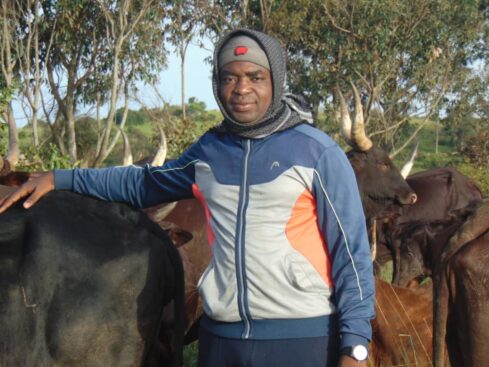
Hamma’adama explains the history of the relationship between Kaka and Fulani. “In the 50s, Kaka were becoming shepherds to the Fulani. Before that time the Kaka were farmers and hunters. Fulani and Kaka intermarry, and vice versa.”
Kaka quarters
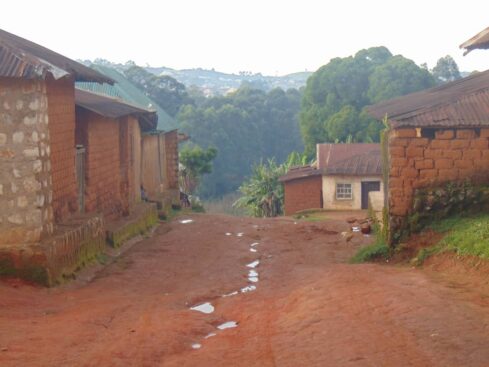
Mohammed Umar, who hails from and works in Gembu, is present during the interview. He tells a story of the early beginnings of Kaka quarters. “The Kaka quarters was initially the rearing area of his father. Later it became Kaka quarters.”
Hamma’adama continues, “When he was rearing his cattle, cattle used to go to farms and consume crops, resulting in court cases. One day he felt that if he kept the cattle, which were always destroying people’s farms, and didn’t compensate the farmers, he may lose paradise and go to hell. He decided to sell all his cows and called all his people and gave them plots free of charge.”
“He later gave government land for the government secondary school. He gave land for Kaka Quarters primary school. We want to change the name to Hamma’adama Primary School. He gave land for Muslims to build a mosque, and also gave land for a church.”
Hamma’adama Kaka
Maiwada Yakubu, Jauro Kaka, explores the history of cattle rearing among non-Fulani groups. “It started with my grandfather, Alhaji Ahman Hamma’adama Kaka. He was a paramount ruler of the Kaka. He was called the Sarkin Yakin Mambilla. They are the people who built and held onto this very land. He started off with Ado Bajju, the first.”
6 months/I year
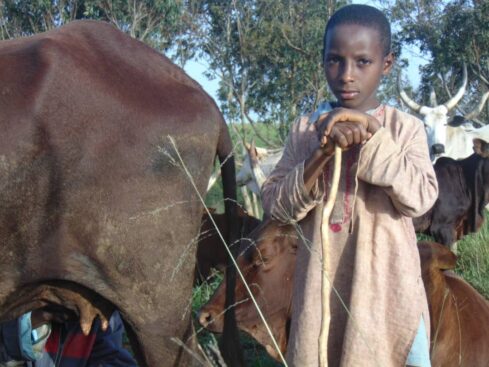
“He came up with the idea of rearing cows. He was sharing ideas, and transacting business with the Fulani and he developed interest in having his own cows. He started a system of rearing as someone who is trying to learn, serving under the Fulani. At the end of every 6 months or a year, it depends on how the discussions went, at the end of the year or 6 months, they will give you cattle as a form of honourarium. Before he became a shepherd to the Fulani, he had his own money at that time. However, he wanted to learn from the Fulani.”
Yakubu’s uncle had a ranch in the area now known as Kaka quarters. Hear him, “After the Fulani settled him, he came back and became famous in the Kaka community. He was rich and had money and cattle. This Kaka quarters served as his ranch where he used to rear his cows. Later, he moved the ranch to a different location.”
Mayo Sum Sum
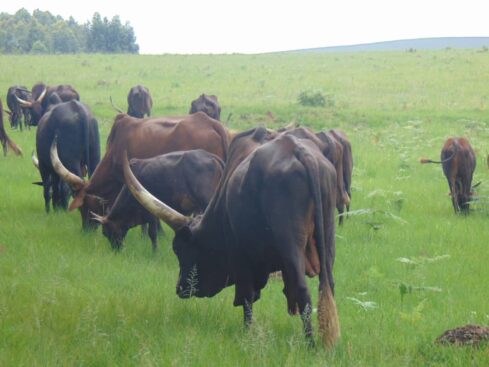
Cattle rearing is a common activity in his family. According to him, “My father also reared cattle. My father left Mayo Sum Sum, a small village, around the early 50s to Nguroje where he had primary education. He migrated to Gembu, where he met my grandfather. He came to Gembu with his own cattle. My father served under Alhaji Hamma’adama’s company. He was a contractor, having his own ranch, with cattle. My father was his personal assistant. He decided to join Alhaji Hamma’adama until he had established his own ranch, and then he separated his cattle from that of Hamma’adama.”

Cattle honourarium
Wakilin Kaka states; “He too was a shepherd to Fulani in Mayo Sum Sum. If you are serving under the Fulani, as a shepherd, at the end of a year or 6 months, they will give you a honourarium for the job you have done for them. He came here with 20 cows before joining my uncle. Back then he served under the Fulani as a shepherd. He served at least 10 years as a shepherd, and he was learning Fulfulde.”
“My father learned everything and then he transferred all he learned to me. The non-Fulani cattle rearers on the plateau include Kaka, Mambilla, Panso, Kambu, Hausa, and Kanuri.’
Builder to herder
Hamma’adama traces how his father’s wealth in cattle began. “My father was a builder, a traditional bricklayer, not like the modern one using blocks. He was constructing the local building for which they use mud to build. That was his job and he was very good at it. Most of the Fulani around Wuro Ardo Adamu and other places, the houses there were built by my father. It was his job. When they give him a contract to build the house, after completing the building he will be paid with a cow.”
Birth of Kaka quarters
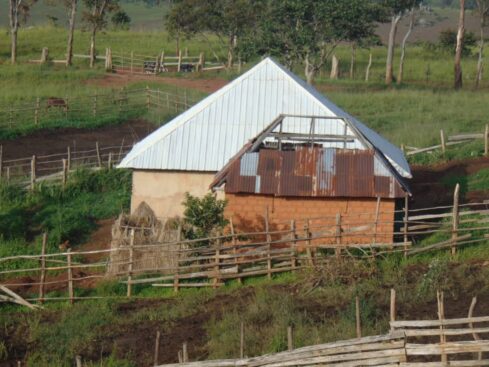
“When he got enough cows, and there was no place to keep the cows, he complained to his master who was called Mutawalle, the treasurer of the Mambilla native authority. The latter now went to Ardo Jauro, the Ardo of this area, and said Hamma’adama, whom you gave the contract to build houses and you paid him with cows, now he has no place to put the cows. So, Ardo Jauro gave him this place, which is now Kaka quarters.” That was the beginning of Kaka quarters.
Kanuri’s marry Kaka
Yakubu opens up on other ties shared by the non-Fulani cattle rearers. “The Kanuri’s intermarry with the Kaka. There are more than 10 Fulani women in my family. Also, there are at least 20 Kaka women married into a Fulani family on Mambila.
“My children are expressing interest in cattle rearing. I learned from my father, my father, in turn, learnt from my grandfather. My children are learning from me,” says an official at Jauro Kaka’s court
“Kaka and Mambilla are farmers, and at a point, they met the Fulani who are cattle rearers, and then the grazing area was no longer there. So, Fulani were encouraged to graze within an area. They learned from the Fulani, but Fulani also learned from them. On the plateau, while Kaka and Mambilla have cattle, Fulani also engage in farming,” he emphasises.
“The groups learn from each other. I grew up and met my father doing things in common with the Fulani. If I have cattle, it’s because I inherited it from my father. Many of our boys were shepherds to Fulani at a time.”
Cattle inheritance
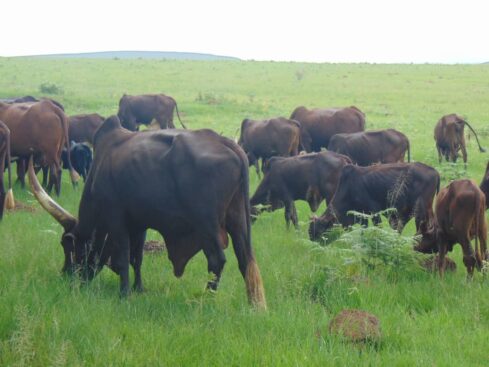
There are various methods of owning cattle. “There are two ways of getting cattle inheritance. One method is by receiving an honourarium after working for the Fulani as a shepherd. My late brother had a ranch not far from here. After my father died, I took my father’s cattle and gave them to him. Those who have money among the non-Fulani cattle rearers, can buy cattle, and become a cattle rearer. Those who have money can go to the cattle market, to buy and increase their ranches. They will now become cattle rearers.”
AYK ranch
Yakubu speaks on his ranch, known locally as the AYK ranch. Hear him. “The ranch was established in the early 70s. When my father left Mayo-Sumsum village, coming to Sardauna Local Government, he came with 20 cattle. He was able to get work as a shepherd working under the Fulani. He acquired this ranch. Its 16 hectares and two streams pass through it. Eucalyptus trees are another resource attached to the ranch. It is planted naturally, we cut it into hardwood, and the planks are used for building and construction. People also come here for picnics.
He adds, “There are approximately 100 cattle in the ranch and there are five persons working here. There’s a veterinary doctor, and another person who supports the shepherd to look after the cow.”
‘My shepherd is Fulani’
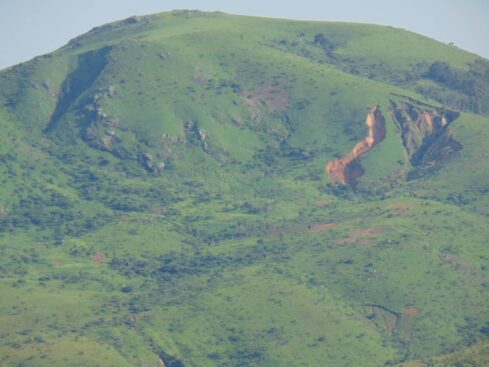
He refers to something of interest. “The relationship that exists between Kaka and Fulani back then was a good one. My father the Jauro in those days, worked under a Fulani as a shepherd. He then mobilised his own cattle. I inherited the cows and presently, I have a shepherd who is Fulani, and looks after my cows. There is, therefore, a significant relationship between the Fulani and Kaka.”
Ardo, Ardido
Next he comments on titles among the Fulani. “Normally, among the Fulani, the community will select someone who can lead others. There is a title given to him. They will call him Ardo. Like we in the Kaka community, my grandfather was selected and appointed as Sarkin Yakin Sardauna when he was working together with Bajju the first. Later, the title migrated to my father. He was appointed as the Jauro. He is now no more, and I inherited the seat given to him.
“The title of Ardo is given by the traditional ruler here. Ardo derives from Ardido, which means someone who is leading.”
Unique qualities
An Ardo must possess unique qualities. “There are certain criteria which are borne in mind when selecting the Ardo. A person who is famous, who has the qualities of leadership, and he has the highest number of cows in the community, can become an Ardo. He is selected because of his transparency, and the quality of leadership that he has demonstrated.’
He continues, “The community will now sit down and select him as Ardo. The title of Ardo is given to Fulani under the leadership of the traditional council. It can be given to non-Fulani. However, they always make sure that these criteria are met.”
Great opportunity
Ahijo Bamanga, an artisanal miner who was born in Gembu, speaks on cattle rearing opportunities on the plateau. “Cattle is a big attraction in Gembu, and cattle rearing is part of farming. Whatever you want to grow may do well on the plateau. Local chicken, poultry generally can do well there. Gembu is a great opportunity.”
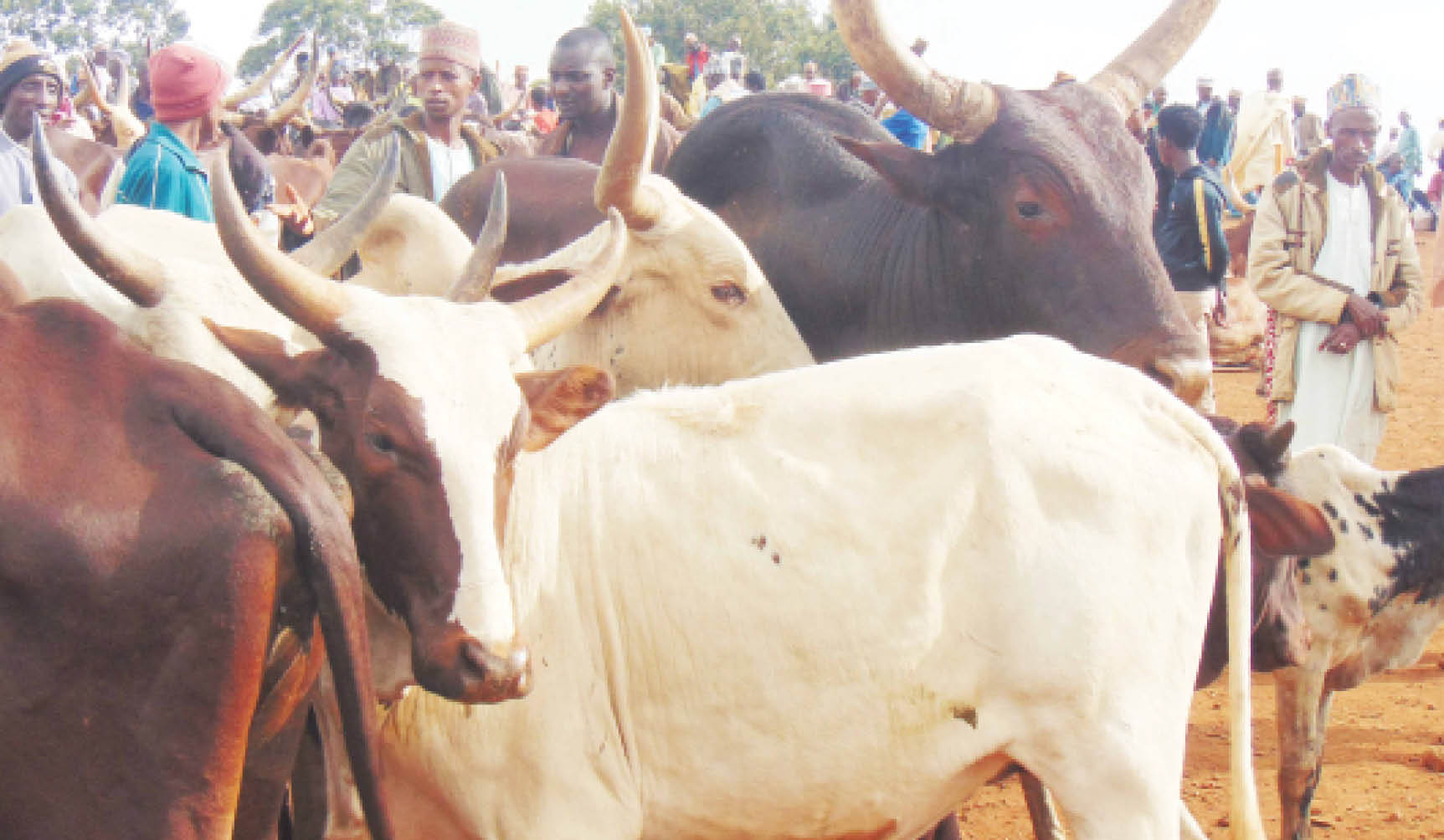
 Join Daily Trust WhatsApp Community For Quick Access To News and Happenings Around You.
Join Daily Trust WhatsApp Community For Quick Access To News and Happenings Around You.

